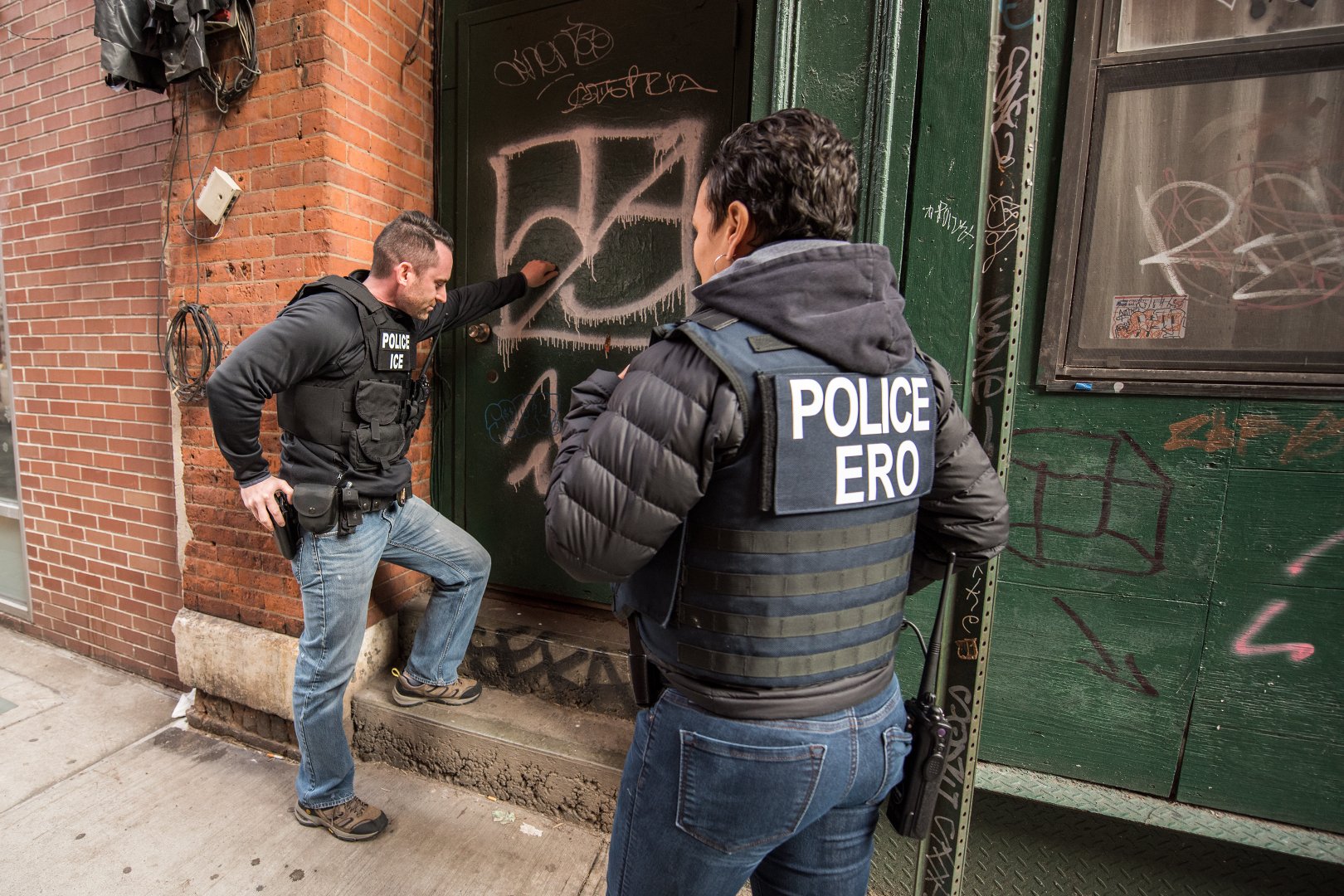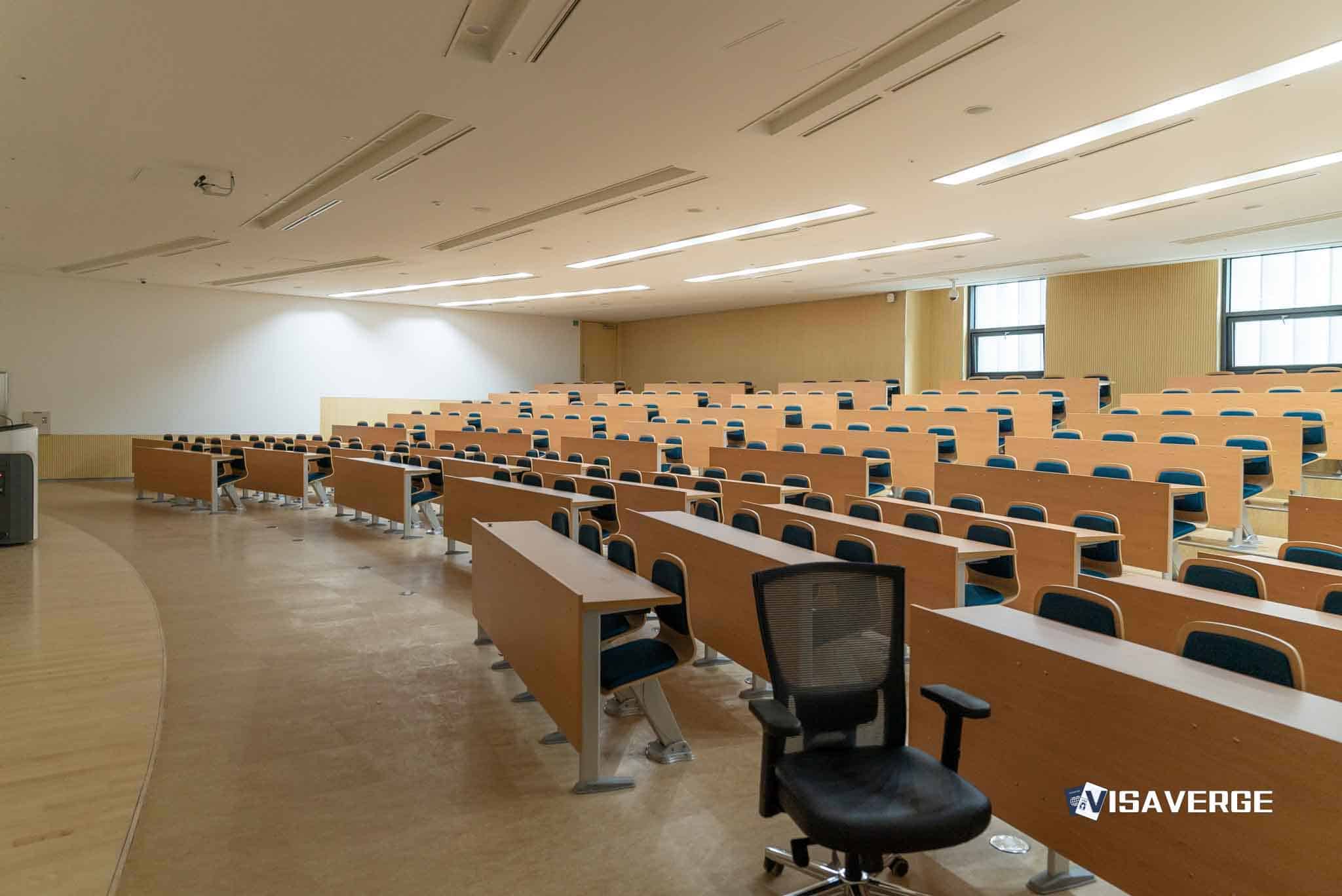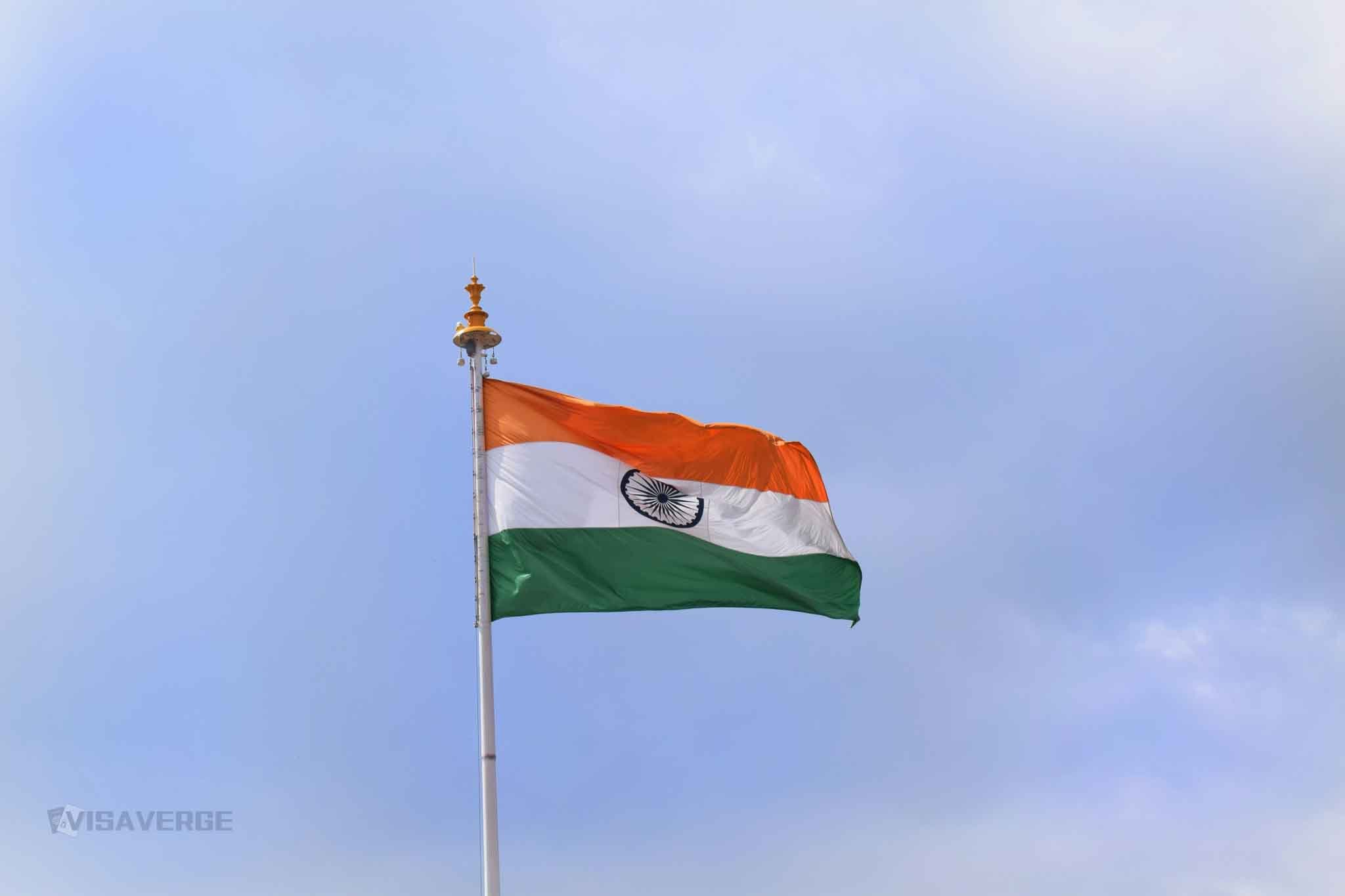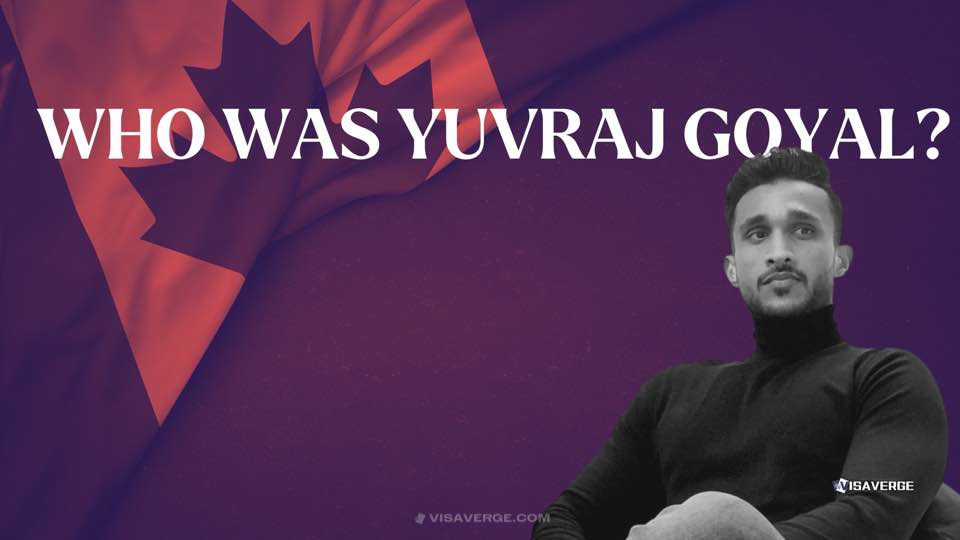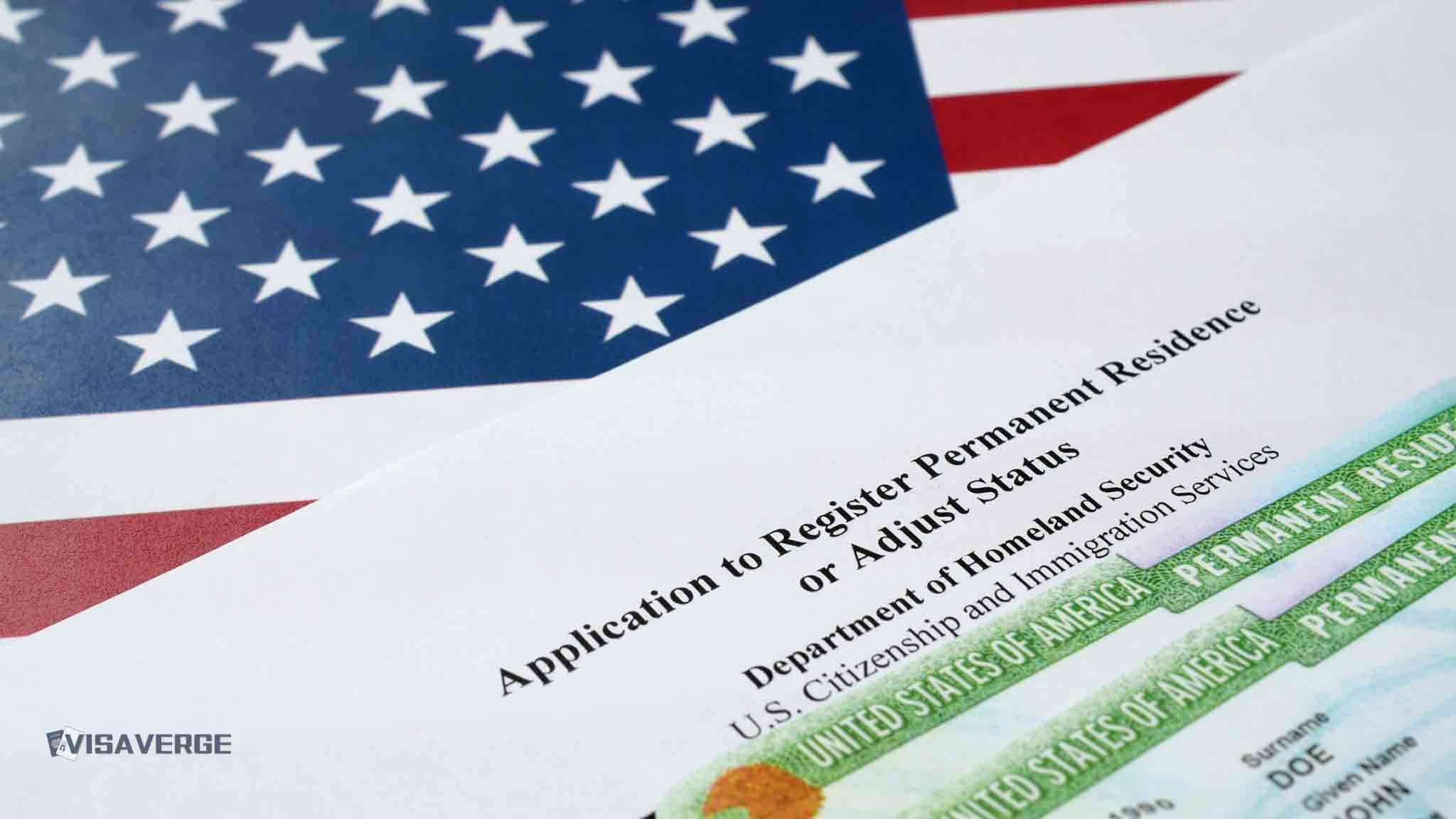Two Indian students with strong academic records and secured funding were refused F-1 visas in recent interviews, both receiving 214(b) denial notices that cited doubts about their plan to return home after study. Their cases, shared by applicants who interviewed at U.S. consular posts, underscore a core feature of U.S. law: every nonimmigrant applicant is presumed to be an intending immigrant unless they show enough ties to India to convince the officer they will depart after their program.
The denials turned on credibility and intent, not grades or bank statements. They show how even small details—like H-1B family ties or mentioning a friend in the United States 🇺🇸—can shape the outcome in the interview room.

Case summaries
- One student told the officer her sister works in the U.S. on an H-1B visa. She had a solid profile and admission to a recognized university, with financing ready. Still, the officer issued a 214(b) refusal after a brief exchange. The student left with a blue refusal slip, unsure whether to try again this season or pause her plans. VisaVerge.com reports the student believed her record should have cleared any doubt, but the interview focused on long-term intent and family links in the U.S.
- A second student, interviewed at the U.S. Embassy in New Delhi, held offers from several well-known institutions—Northeastern, NYU, UIUC, Duke, Purdue, and Northwestern—and had two confirmed admits. She explained her finances and said she had no close relatives in America, but did mention a friend at Northeastern who was close to finishing. The officer denied the case under Section 214(b) and, according to her account, refused several other student and visitor cases that morning. While she met academic and financial tests, the officer remained unconvinced about her plan to return to India after her studies.
Why these denials happened: the legal and practical test
Approval does not rest solely on good grades, admission letters, or bank statements. The officer’s job is to judge intent and credibility within a few minutes. Under Section 214(b) of the Immigration and Nationality Act, the presumption is immigrant intent. If the officer is not persuaded that you will leave at the end of your permitted stay, a 214(b) denial follows.
Officers look beyond documents to the applicant’s story of return: a clear, believable plan linking the U.S. degree to specific roles, industries, or family duties in India. They watch for consistency across answers and react to hints of deeper roots in America—such as close relatives on work visas or friends who could shape post-study choices—even when those links are legal and common.
For general background on this legal basis and what it means across visa types, see the U.S. Department of State guidance on 214(b).
Interviews end in 214(b) refusals despite strong files
- The first case highlights a worry for many Indian families: whether H-1B family ties can tilt an interview. The officer did not indicate wrongdoing or misrepresentation; rather, the officer did not find enough proof of ties that would pull the student back to India after graduation.
-
The New Delhi case shows another pattern: mentioning U.S. connections (even friends at a U.S. campus) can shift the conversation away from study plans and local ties. That may lead the officer to wonder whether the applicant will use those connections to remain in the U.S. after Optional Practical Training (OPT) or other post-study steps.
Both applicants reported that the officer was making quick decisions that morning; either way, each decision rested on the officer’s view of intent under 214(b).
What officers look for under 214(b)
Section 214(b) presumes a temporary visa applicant intends to immigrate unless proven otherwise. Practically, officers look for “ties” to the home country—anchors that pull a person back. These ties can include:
- Family presence in India (especially dependents)
- Property or other significant assets
- A clear job path or commitments in India
- Consistent, credible answers that align with your application
Officers may refuse when:
– They are not convinced of strong home ties.
– Interview answers suggest plans that point to a longer U.S. stay beyond study.
– Immediate family in the U.S., like siblings on H-1B, or close friends raise doubts about a timely return.
– The applicant’s manner or inconsistent details weaken credibility, even without any fraud.
In student cases, questions often focus on future plans. While OPT is legitimate, students who struggle to explain how U.S. training fits a long-term career in India may weaken their case.
Officers want a grounded plan that makes sense in India, backed by ties strong enough to pull the student home after study. When the plan feels vague or overly shaped by U.S. links, doubts win.
Practical steps after a 214(b) denial
A 214(b) denial is not permanent. Students can apply again, and many do. The key: change the facts or the way the story is told—not just repeat the same answers.
Recommended steps:
1. Show concrete ties to India
– Family support where parents or relatives depend on you
– Property or documented financial ties
– A confirmed role in a family business or a written plan with a local employer
- Keep answers focused and consistent
- Interviews are short; avoid over-explaining U.S. links
- If asked about relatives or friends in America, answer briefly and return to your India-based goals
- Explain career goals with a clear India track
- State a job role, industry, and timeline for returning
- Explain how the U.S. program fills a specific skills gap matched to India’s demand
- Prepare for another try
- Provide new facts if possible (stronger financial plan, clearer job path, updated admissions)
- Practice short, steady responses that match your application
- Treat U.S. links with care
- A sibling on H-1B or a friend at a U.S. campus is normal—be ready to explain briefly how those links affect (or don’t affect) your choices
Additional guidance:
– Write down each question and answer immediately after the interview to identify weak moments.
– Rehearse a concise narrative that always ties back to India-based outcomes.
– Avoid adding documents that do not align with or support your return story—officers rarely accept extra papers once intent is in doubt.
Common misunderstandings and emotional reality
- The refusal does not usually list missing documents or provide a fixable checklist. Officers are not required to give a detailed explanation beyond the refusal code.
- A 214(b) denial does not mean you are unqualified or dishonest—only that the officer was not persuaded of nonimmigrant intent in that brief meeting.
- Many applicants who refine their case win approval on later attempts.
Quick interview checklist (for future applicants)
- Start with purpose: degree, field, and why this program is needed for your work in India.
- State funding clearly: source, amount, and coverage for tuition and living costs.
- Define the return path: job roles, industries, and timelines back in India.
- Acknowledge U.S. connections briefly, then bring focus back to home ties.
- Keep answers short, consistent, and confident.
The two Indian applicants described by VisaVerge.com illustrate the balance officers seek: a pattern of answers that points home. One isolated detail rarely decides a case on its own; it is the overall pattern that matters. For students eyeing the next intake, the practical message is clear: make your return plan vivid, keep your answers tight, and present U.S. connections in a way that supports—not weakens—your claim to return home.
This Article in a Nutshell
Two Indian applicants with strong academic records and confirmed funding were recently denied F-1 visas under Section 214(b), which presumes immigrant intent for nonimmigrant applicants. In brief interviews, consular officers questioned both applicants’ plans to return to India after study—one cited a sister on an H-1B visa and the other mentioned a friend at a U.S. campus. Decisions relied on credibility and consistency rather than academic or financial documents. Officers evaluate an applicant’s story of return, including family ties, property, job prospects, and clear career timelines in India. A 214(b) refusal is not permanent; reapplying with new facts, a focused narrative, and stronger India-based ties can improve chances of approval.









